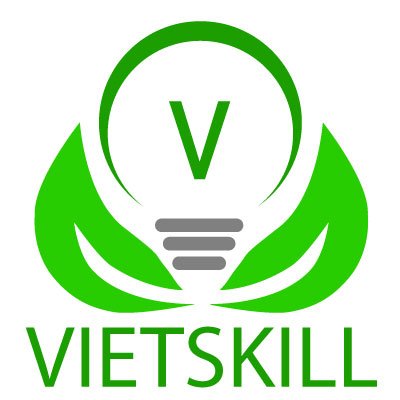
VIETSKILL addresses one of the specific challenges in the next stage of Vietnam’s industrialization, namely, the skills gap and skills shortages in Vietnam’s labor market, as highlighted in Danida’s Window 2 “Research in growth and transition countries” call for applications. The project will identify strategic sector cooperation on vocational education and training, supporting stronger coherence between the Vietnamese TVET system and the labor market by addressing skill-gaps and identifying future skill requirements. The project objectives are also in line with Vietnam’s Sustainable Development Strategy for 2011-2020, DANIDA’s priorities for collaboration with Vietnam, and several of UN’s Sustainable Development Goals (SDGs 4, 8, and 9). The research undertaken will contribute significantly to the capacity upgrading of the Vietnamese partner institutes since all work is carried out in close collaboration between Danish and Vietnamese participants.
VIETSKILL addresses one of the specific challenges in the next stage of Vietnam’s industrialization, namely, the skills gap and skills shortages in Vietnam’s labor market, as highlighted in Danida’s Window 2 “Research in growth and transition countries” call for applications. The project will identify strategic sector cooperation on vocational education and training, supporting stronger coherence between the Vietnamese TVET system and the labor market by addressing skill-gaps and identifying future skill requirements. The project objectives are also in line with Vietnam’s Sustainable Development Strategy for 2011-2020, DANIDA’s priorities for collaboration with Vietnam, and several of UN’s Sustainable Development Goals (SDGs 4, 8, and 9). The research undertaken will contribute significantly to the capacity upgrading of the Vietnamese partner institutes since all work is carried out in close collaboration between Danish and Vietnamese participants.

The overall objective of VIETSKILL is to strengthen and upgrade Vietnam’s TVET system to help it meet the requirements of the country’s labor market in the next stage of industryalization. The specific goals of this pilot project are to understand the medium- term skill upgrading requirements in foreign MNEs in selected GVCs in Vietnam, to examine the current state of development in Vietnam’s TVET programs, to identify public investment priorities, and to design strategies to strengthen the TVET system. In addition to advancing academic knowledge, the project aims to help Vietnam’s TVET programs deliver the skills and capabilities needed to raise domestic value-added and local participation in GVCs. To this end, the project will assess opportunities and develop strategies for partnerships between educational institutions, authorities, foreign investors, and other stakeholders in the relevant TVET programs.
The project objectives will be achieved through three work packages (WPs). WP1 aims to analyze the upgrading trajectories and skill requirements of GVC firms, to identify priorities for Vietnam’s TVET programs regarding the skills needed to link up with GVCs and to meet the current and future demand for human capital. WP2 aims to evaluate the TVET system and provide advice for improving its quality and coverage, given the demand projections from WP1. The evaluation includes both TVET performance and the underlying policy framework (incl. governance, legal, and information). WP3 aims to identify opportunities and strategies for partnerships between foreign investors, authorities, TVET providers, and other stakeholders, and to design pilot projects for implementation in the two target GVCs.

Outcomes: The ambition of VIETSKILL is to develop methods for forecasting the demand for skills and capabilities in selected GVCs in Vietnam (electronics and food processing in the first phase with additional sectors included in the second phase) and to develop successful partnership models for TVET that comprise both FDI enterprises, local firms, education institutes and other stakeholders. The success of new partnership arrangement in vocational training models will reduce the skills gap and provide inspiration and useful insights for further reform of Vietnam’s TVET system. The project will also strengthen the capacity of participating partners from Vietnam through the research collaboration between Vietnamese and Danish research institutions.
Outputs: Three academic articles and five policy reports are the expected direct results from the project’s research activities. WP1 aims to produce one policy report and two articles for academic journals on skill upgrading and Vietnam’s GVC participation; WP2 plans to produce one policy report on TVET system reform and one article for academic journals; and WP3 has three deliverables on training partnership models for skill development between education institutes and enterprises, covering issues such as curriculum design, governance, finance, information, and infrastructure. The project also organizes two seminars, bringing together FDI managers, education institute managers, and policy makers in discussing project results and selecting business partnership for the skill development in next phase. The seminars provide forecasts of labor skill requirements in GVCs and capacities of current TVET and act as platforms for launching collaborations between enterprises and training institutes in skill development, which will be carried out in second phase of the project.